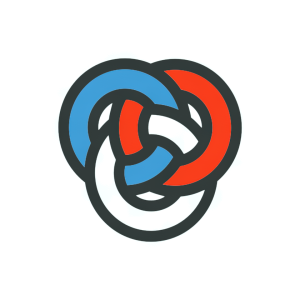SURVEY: Majority of Middle-Income Canadians Report Lacking Basic Financial Education
Understanding taxes, managing loans, setting household budgets among tasks families feel traditional education didn’t properly address
The survey found more than two-thirds (
The lack of financial education may be why nearly three-quarters (
"At a time when many Canadians feel uncertain about inflation and their financial futures, our survey highlights significant gaps in financial education and preparedness, as well as the misconception that financial advice is too costly for middle-income families," said John Adams, CEO of Primerica Canada. "We have long recognized these households need support, and we continue to advocate for making this type of support affordable to help Canadians of all income levels build and maintain financial security.”
The survey also highlights broader attitudes around financial uncertainty and local economic conditions. While a majority (
“Middle-income Canadians who feel left behind when it comes to financial education and guidance are increasingly turning to life insurance companies and the individuals that represent them for advice,” said Gary Edwards, Ph.D., co-founder and research lead of Golfdale Consulting. “Given that we know the trust factor is there, the focus should now be on ensuring access remains in place, so financial guidance is in reach for anyone that needs it.”
Key Findings from Primerica’s Canadian Financial Security Monitor™
-
Most say financial education is insufficient. A sizeable majority (
68% ) of middle-income Canadians feel schools did not prepare them well for managing their personal finances in adulthood, indicating a substantial gap in financial education. -
Personal finances viewed more positively than economic health of province. Nearly two-thirds (
65% ) of middle-income Canadians rate their personal finances as good or excellent while three-quarters (75% ) view the economic health of their province as not good or poor. -
More families are saving for the future. A majority have a savings account (
72% ) or a self-funded, tax-free savings account (58% ), an increase over previous surveys. In addition, nearly half (47% ) have a self-funded, registered retirement account. -
Emergency savings lacking. More than one-third (
35% ) of middle-income Canadians do not have an emergency fund. While this marks a slight improvement over previous years, it also highlights an ongoing financial vulnerability. -
Inflation and health are top worries. The survey identifies inflation and health-related expenses, both at
61% , as the primary concerns among middle-income Canadians. Additional financial pressures come from grocery costs (39% ) and challenges in saving for retirement (36% ). -
Financial advice is seen as essential. Most middle-income Canadians (
72% ) agree that everyone should have access to a financial professional. However, just two-fifths (38% ) believe they can afford it.
About Primerica’s Canadian Financial Security Monitor™ (FSM™)
Since 2020, the Canadian Financial Security Monitor™ has surveyed middle-income households across
About Primerica, Inc.
Primerica, Inc., headquartered in
1 Numbers reflect the combined totals or daily average, as indicated above, as of, or for the year indicated above, for the following affiliated companies: Life Insurance: National Benefit Life Insurance Company (Home Office:
View source version on businesswire.com: https://www.businesswire.com/news/home/20240513333683/en/
Investor Contact:
Nicole Russell
470-564-6663
Nicole.Russell@primerica.com
Media Contact:
Susan Chana
404-229-8302
Susan.Chana@Primerica.com
Source: Primerica, Inc.







